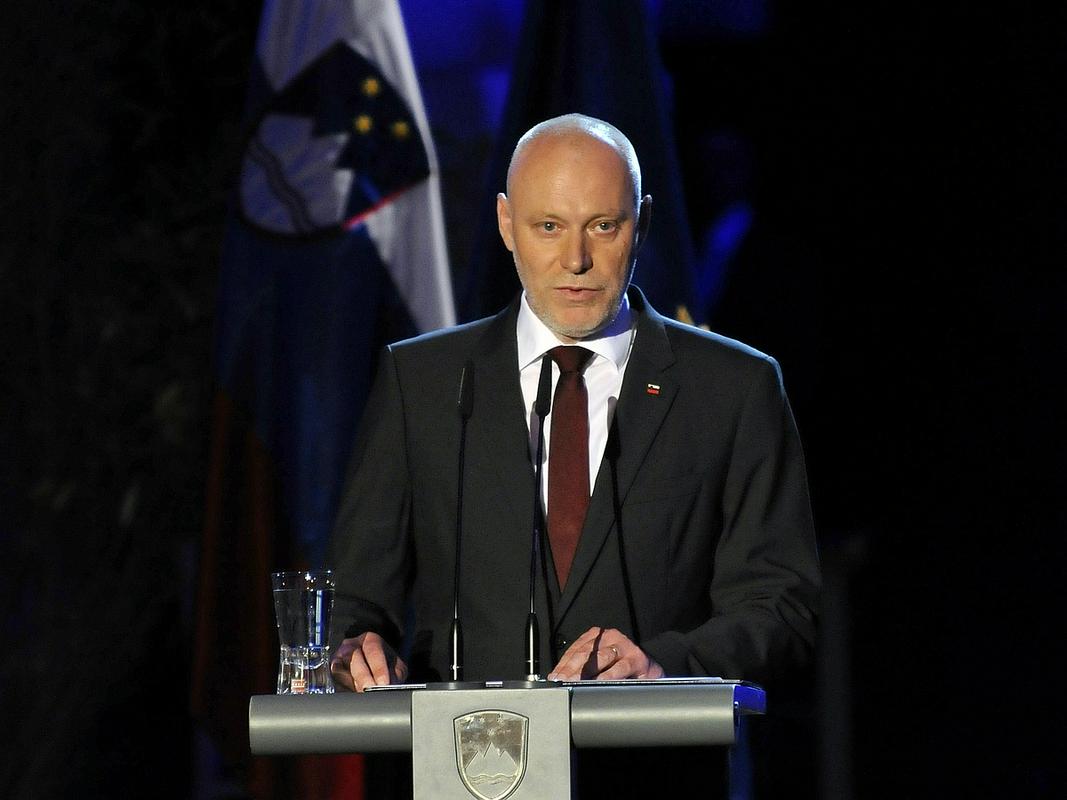
"We could say that the Second World War was also a battle between good and evil. And the good conquered the evil in the end. In early May 1945, after six years of bloodshed and terrors, dead people and burnt homes, this massacre, unparalleled by any in history, was over at last. And the continent of Europe finally found itself in the all-encompassing arms of freedom," described Brglez the joy from seven decades ago.
He argued that the awareness of how valuable freedom was, had been presented among the Slovenian men and women long before the start of the Second World War. The bitter experience of life without the basic right, without the freedom of expression and the freedom of cooperation in the society, was first felt among the compatriots in the Primorska region, who found themselves outside of the native homeland after the Rapallo treaty, but the storm of atrocities did not only cross that region. After the invasion by the axis, on 6 April 1941, it spread over the entire Slovenian native land.
"The threat to the homeland called for rebellion, the boys and the girls responded to the call of their homeland, without any wavering. They knew that the freedom and the survival of the Slovenian nations gets preserved or falls with them. This is why they left their homes, went to the woods and joined the partisan movement. They were willing to pay the highest price for the homeland and its survival – to pay with their own lives," praised Brglez the courage of the fighters.
"It’s high time we buried our dead"
Brglez then reminded the audience about the history’s darker part. "As if our nation had not suffered enough under the occupation, we inflicted on ourselves an even deeper wound with post-war massacres," he said. There are about 600 mass graves scattered around Slovenia, hiding away the remains of people executed in the months following the end of the Second World War.
"70 years later, it’s high time we buried our dead. Not only do our history and the civilisation we belong to demand this from us, but also the fact that we’re human," said the National Assembly’s president.
When we decided for our own country almost 25 years ago, the decision was taken out of free will, which is why we need to treat it with responsibility, believes Brglez, adding that the differences between us should not keep us apart but enrich our society, since regardless of the world view as well as the political view, we all belong to the same country.
Take me into your arms, Freedom
Slovenia was victim of and witness to the Second World War in all its horror: occupations with the worst forms of violence and trading with the torn apart pieces of the occupied Slovenian land.
The fact that the death toll among Slovenians amounted to 97,000 and that a tenth of the occupied population was deported by the Nazis, speaks on its own about the totality of the war on Slovenia’s territory. When the unconditional capitulation or the entire German armed force was signed in Berlin on 9 May 1945, Ljubljana finally awaited freedom. The last battle of the Second World War on European soil was fought six days later close to the village of Poljana in the Koroška region.
T. H., MMC; translated by K. Z.

































































